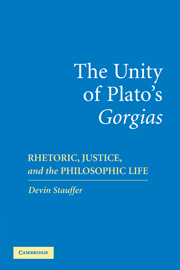Book contents
Introduction
Published online by Cambridge University Press: 30 July 2009
Summary
Few philosophers have endured more criticism and abuse in modern times than Plato. As one of the great figures of the classical tradition, Plato was subjected to powerful attacks by the founders of modern philosophy and their followers, who set out to succeed where they thought the naïve and utopian ancients had failed. And the attacks on Plato continue unabated today, as postmodernists look back to his works to find the source of the faith in reason that they want to root out of the West. Yet, for all that, Plato has not lost his power to attract and enchant. Those who first sought to overthrow the intellectual authority of classical philosophy, men such as Machiavelli and Hobbes, would be amazed to learn that their foe continues to attract partisans and even devotees. And more recent critics, such as Derrida and Rorty, are similarly dismayed that their efforts finally to put Plato to rest have not succeeded. Is it not a strange feature of our late modern or postmodern age that there still remains serious interest in Plato?
Yet perhaps the very difference between Plato and his critics, from the early moderns to those of our time, can help us to understand why his works have not lost their appeal. For one of the most powerful things drawing readers back to Plato today is their sense that his works contain a richer and truer account of human life, of the soul and its deepest concerns, than one can find even in the greatest works of modern philosophy.
- Type
- Chapter
- Information
- The Unity of Plato's 'Gorgias'Rhetoric, Justice, and the Philosophic Life, pp. 1 - 14Publisher: Cambridge University PressPrint publication year: 2006
- 1
- Cited by

